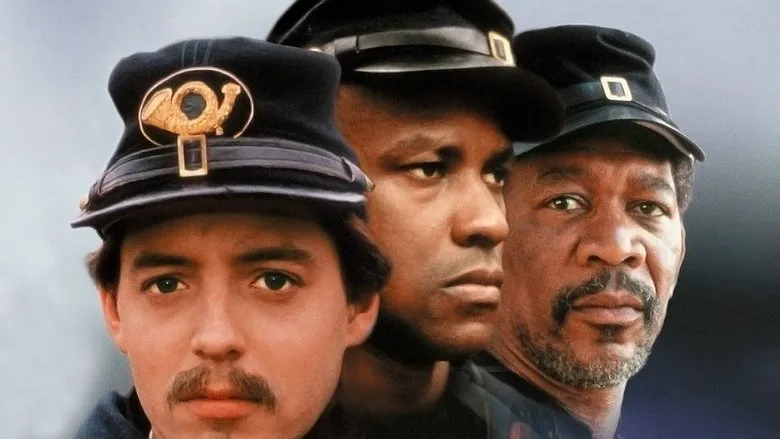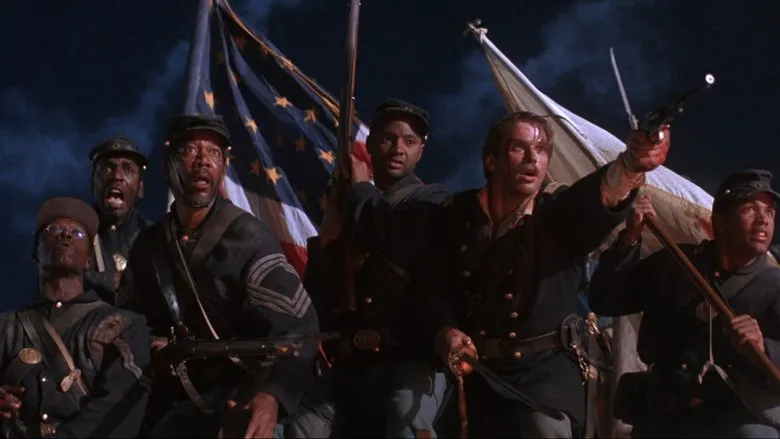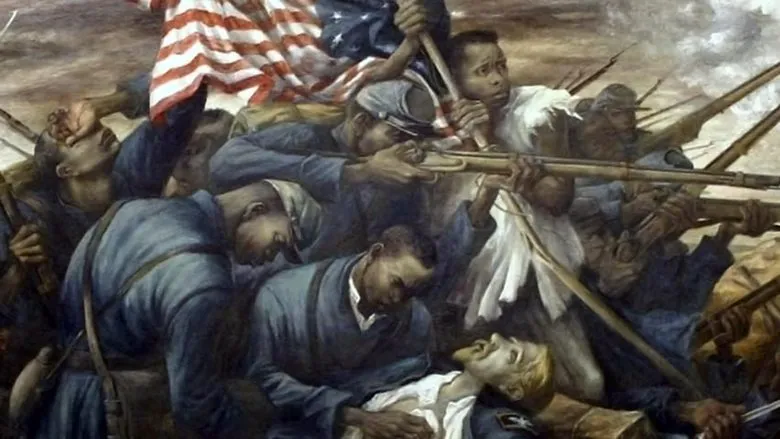“Glory,” a powerful film rooted in historical events, delves into the complexities of the American Civil War, showcasing the valor and struggles of the 54th Massachusetts Infantry Regiment, one of the first African American units in the Union Army. The story is told through the eyes of Colonel Robert Gould Shaw, a white officer tasked with leading these soldiers.

At the outset, we find Captain Shaw being presented with an opportunity upon returning home after sustaining injuries in battle. Hailing from a prominent Northern family, Shaw’s connections run deep, providing him with leverage even within the military. The film subtly highlights the influence of his family’s status, suggesting affiliations with figures close to President Lincoln, which underscores the political weight behind the formation of an all-black regiment led by white officers.
The Privileged Ascent and the Reality of War
Shaw’s rise to Colonel, orchestrated through familial connections and political expediency, is candidly depicted. This element of nepotism, while potentially diminishing the romanticism of the narrative, injects a stark dose of realism. Could an officer of lesser means have achieved the same? The film subtly suggests the playing field was far from level.
The narrative follows a relatively linear path: recruitment of soldiers, transforming them from a ragtag group into a disciplined fighting force, confronting racial prejudice, and fighting for equal treatment in terms of supplies and pay, all whilst battling for the right to engage in combat. It’s a story of systemic injustice and the arduous fight for recognition and respect.

The Human Cost of Prejudice
One of the most poignant moments involves Trip, an escaped slave, seeking suitable footwear. His desperate search leads to accusations of desertion, and the subsequent punishment reveals the brutal reality faced by these men. Trip’s scarred back, a haunting reminder of his past enslavement, brings the systemic cruelty to the forefront. The scene presents us with a difficult question: how can men fighting for freedom be subjected to such inhumane treatment within their own ranks?
This injustice threatens to shatter the unit’s morale until Shaw, leveraging his influential connections, secures adequate supplies for his men. The power of Shaw’s position is evident, as his intervention averts disaster and underlines the privileges afforded to him due to his background.
Shaw as a Leader
It’s revealed that Shaw’s command is likely under 600 men. Though his promotion to Colonel might raise questions, Shaw demonstrates his strength in recognizing their fundamental humanity. He sees beyond their backgrounds; to him, they are not merely laborers or political pawns, but United States soldiers deserving of equal treatment and the opportunity to fight for their country. This is perhaps the most profound aspect of his character. He is aided by a stern but effective white sergeant who helps to mold these men.
The Brutality of War and its Meaning
The film doesn’t shy away from depicting the grim reality of 19th-century infantry warfare, where massed formations faced each other in a deadly dance of bullets. While the wisdom of these tactics may be questionable, the film accurately reflects the era’s military practices.
In a brief scene by a pond, Trip and Shaw engage in a thought-provoking dialogue. Trip expresses his uncertainty about the purpose of their sacrifice, fearing that in a post-war world, he would simply return to a life of servitude in the North while Shaw retreats to his family’s luxurious life. Shaw retorts that if they fail, the Black Americans would stand to lose everything. His words resonate with the profound importance of their struggle and the broader implications for the fate of countless others.

The Final Assault and Legacy
The climax arrives with the 54th’s assault on Fort Wagner. A suicidal mission with little strategic value. Shaw and his men knew failure was all but certain but understood the importance of symbolism that came with their effort.
“Glory” is a searing portrayal of courage in the face of overwhelming adversity and a stark reminder of the prejudices ingrained within a nation struggling to redefine itself.